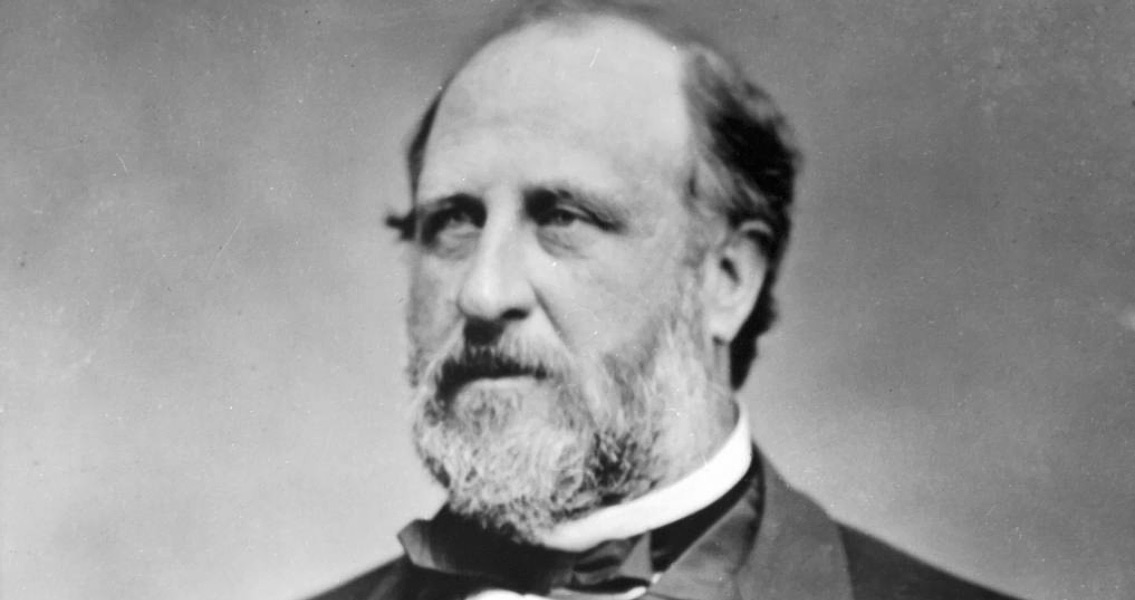<![CDATA[William Magear Tweed was returned to New York on 23rd November, 1876, following his attempt to flee the United States. The leader of the notoriously corrupt Tammany Hall organisation, 'Boss' Tweed had been arrested as soon as he arrived in Spain. A native of New York, Boss Tweed's career is remembered for its association with corruption and cronyism, particularly at the height of his influence in the mid 1860s. Stories of corruption were not unusual in nineteenth century US politics, but the extent of the abuse which had taken place by the time of Tweed's initial arrest in 1873 was truly shocking, with estimates claiming that Tweed and his cronies had stolen between $30,000,000 and $200,000,000 in public funds. Boss Tweed worked as a bookkeeper in a brush factory during his twenties, rising to a management position after he married the daughter of the factory's boss. His move into politics started in the 1850s, when he quickly became a rising star in New York. In 1851, at the age of just 28, he was elected an Alderman in the city and the following year he started a brief stint in the US Congress. Tammany Hall was a political organisation founded in 1789. Initiated out of middle class opposition to the aristocrat dominated Federalist Party, in 1805 it became incorporated as a benevolent body, gaining popularity through the charity work it did for New York's poor and immigrant populations. It also became unmistakably associated with New York's Democratic Party, with the Executive Committee of the New York branch of the party made up of almost exactly the same people as the leadership at Tammany Hall. Tweed's political significance grew as his importance at Tammany Hall also grew. By 1860 he had progressed to such a high level within the organisation that he controlled all Democratic Party nominations to city positions -the Mayor of New York, Governor of New York and Speaker of the State Assembly were all candidates nominated by Boss Tweed. In the same year he also opened a legal office which was supposedly there to give legal advice to companies. In reality it became the front for most of his extortion, with companies paying vast sums to win contracts, or being paid obscene amounts to do minor jobs. Becoming wealthier and wealthier, and more and more powerful, Tweed became state senator in 1868. His friends and associates had been appointed to most of the best positions in government, on high salaries and often with little real work to perform. Tweed himself took to wearing a large diamond on his shirt, as if to publicly mock the authorities who seemed unable to punish him. In 1870 he and the associates he had rewarded with influential jobs managed to change the city charter, essentially giving them control over New York's treasury. Perhaps becoming too flamboyant and visible in his dealings, a movement soon started to form against Tweed. In 1871, blatant embezzlement which took place during the restoration of the City Court House was exposed by the New York Times, and the tide started to turn against him and his cronies. Over the following months, a continued campaign by Harper's Weekly cartoonist Thomas Nast meant the issue of embezzlement wouldn't go away. In elections in November most of Tweed's associates in Tammany Hall lost their seats, and in 1873 he was finally charged with larceny and forgery. Sentenced to prison, Tweed was eventually released in 1875, before immediately facing a new civil charge. He attempted to flee to Spain but was quickly extradited back to the USA in 1876. He would die in jail from pneumonia a year and a half later.]]>
Crony Master 'Boss' Tweed's Escape Foiled
